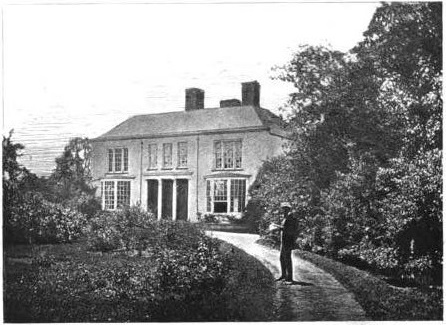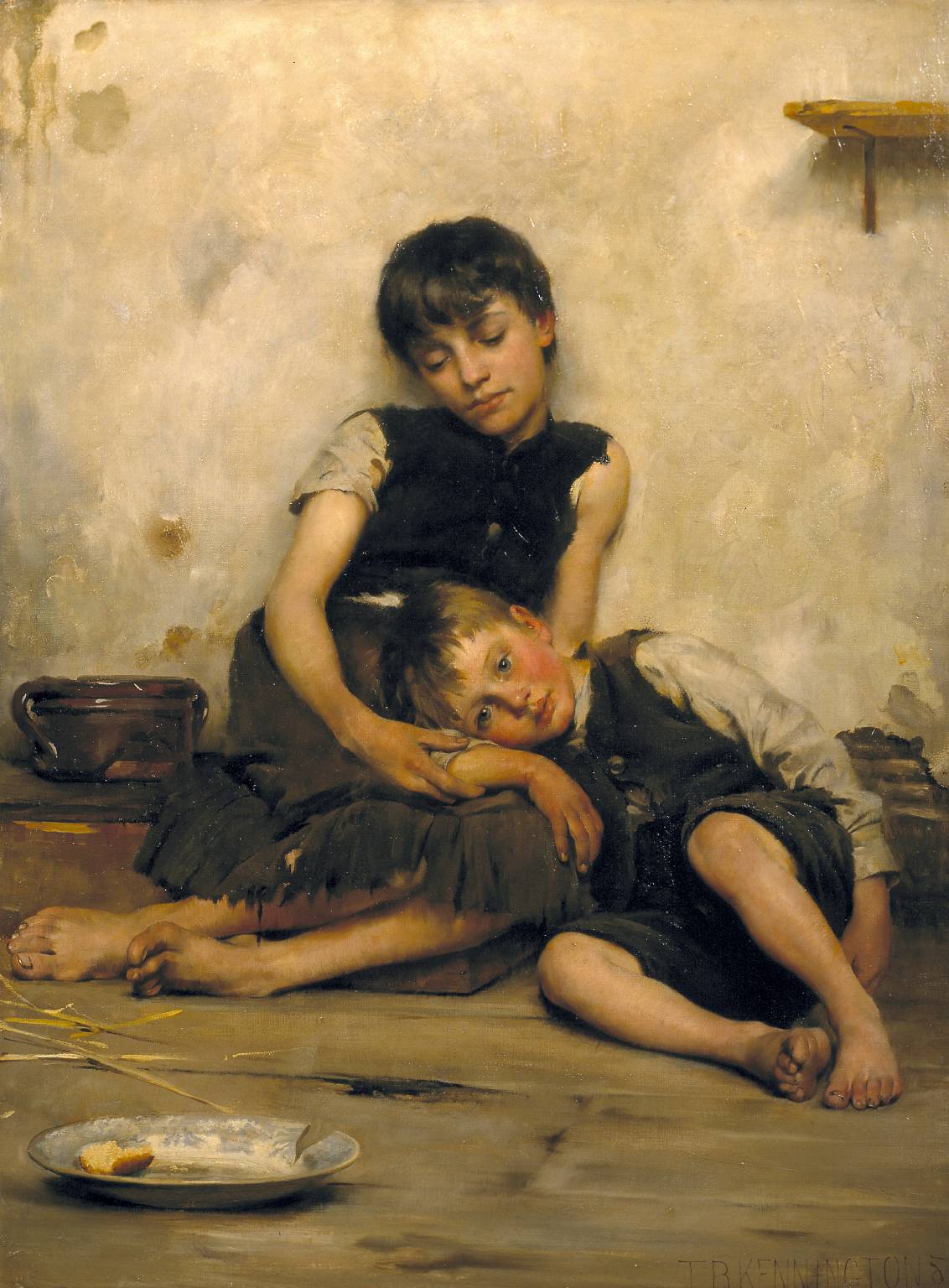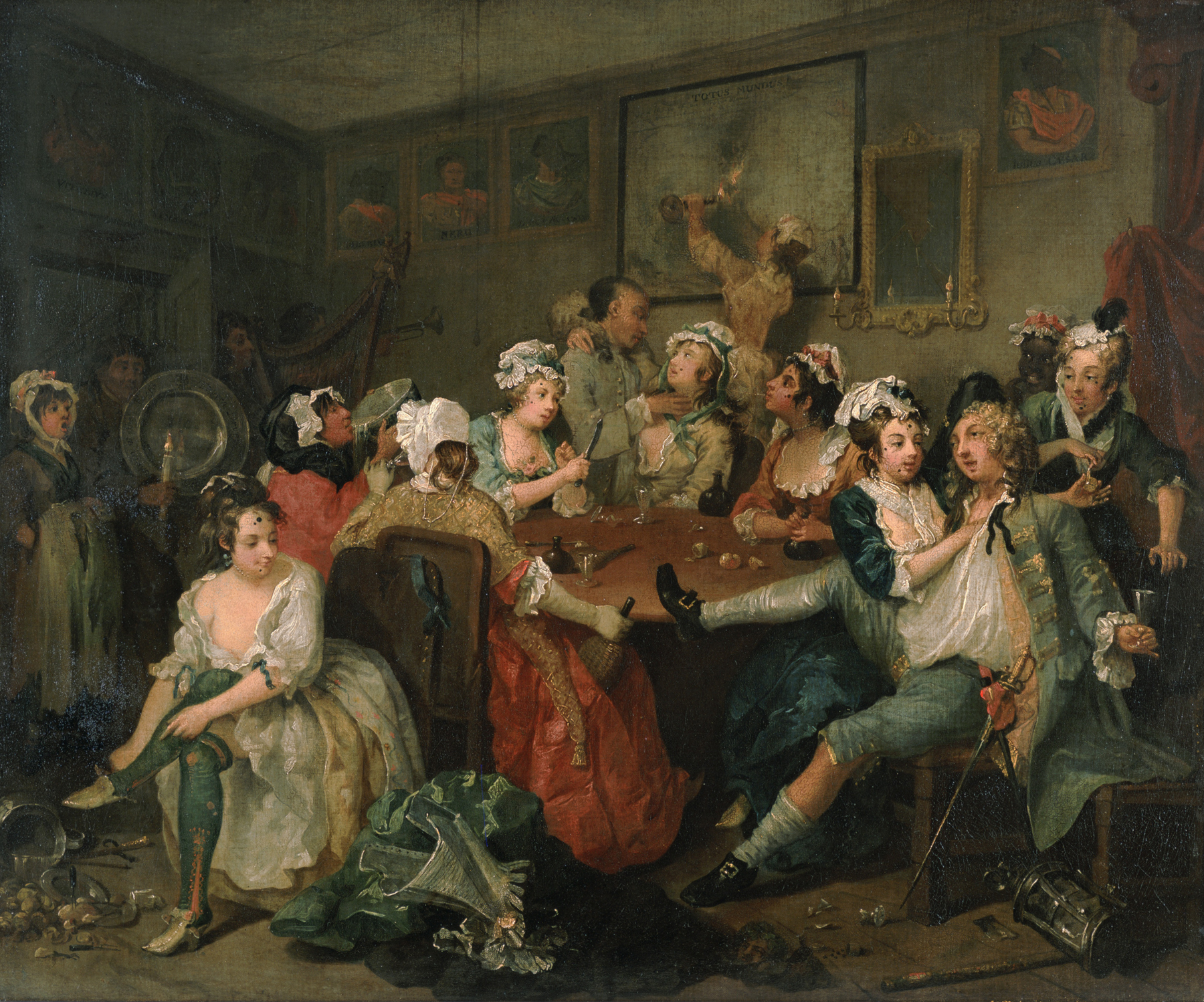|
Helen (novel)
''Helen'' is a novel by Maria Edgeworth (1767–1849). It was written in 1834, late in the writer's life. Synopsis ''Helen'' tells the story of a young orphan, Helen Stanley, whose Legal guardian, guardian, Dean Stanley, has squandered his fortune and left Helen without means of support. She is forced to take up residence with the local vicar, whose wife is astonished that none of the Stanleys' aristocratic friends have offered a refuge to her. Eventually, however, the Davenant family returns from abroad and invite Helen to their daughter's new home, Clarendon Park. (Cecilia Davenant has just married General Clarendon.) Helen journeys to join her dear friend Cecilia (a charming socialite), and the first half of the novel describes Helen's experiences among the most fortunate of Britain's elite under the tutelage of Lady Davenant, who in some ways favors Helen over her own daughter Cecilia. In the second and more dramatic half of the novel, Lady Davenant departs with her husband, ... [...More Info...] [...Related Items...] OR: [Wikipedia] [Google] [Baidu] |
Maria Edgeworth
Maria Edgeworth (1 January 1768 – 22 May 1849) was a prolific Anglo-Irish novelist of adults' and children's literature. She was one of the first realist writers in children's literature and was a significant figure in the evolution of the novel in Europe. She held views on estate management, politics and education, and corresponded with some of the leading literary and economic writers, including Sir Walter Scott and David Ricardo. Life Early life Maria Edgeworth was born at Black Bourton, Oxfordshire. She was the second child of Richard Lovell Edgeworth (who eventually fathered 19 children by four wives) and Anna Maria Edgeworth (''née'' Elers); Maria was thus an aunt of Francis Ysidro Edgeworth. She spent her early years with her mother's family in England, living at The Limes (now known as Edgeworth House) in Northchurch, by Berkhamsted in Hertfordshire. Her mother died when Maria was five, and when her father married his second wife Honora Sneyd in 1773, she went with ... [...More Info...] [...Related Items...] OR: [Wikipedia] [Google] [Baidu] |
Orphan
An orphan (from the el, ορφανός, orphanós) is a child whose parents have died. In common usage, only a child who has lost both parents due to death is called an orphan. When referring to animals, only the mother's condition is usually relevant (i.e. if the female parent has gone, the offspring is an orphan, regardless of the father's condition). Definitions Various groups use different definitions to identify orphans. One legal definition used in the United States is a minor bereft through "death or disappearance of, abandonment or desertion by, or separation or loss from, both parents". In the common use, an orphan does not have any surviving parent to care for them. However, the United Nations Children's Fund (UNICEF), Joint United Nations Programme on HIV and AIDS (UNAIDS), and other groups label any child who has lost one parent as an orphan. In this approach, a ''maternal orphan'' is a child whose mother has died, a ''paternal orphan'' is a child whose fath ... [...More Info...] [...Related Items...] OR: [Wikipedia] [Google] [Baidu] |
Legal Guardian
A legal guardian is a person who has been appointed by a court or otherwise has the legal authority (and the corresponding duty) to make decisions relevant to the personal and property interests of another person who is deemed incompetent, called a ward. For example, a legal guardian might be granted the authority to make decisions regarding a ward’s housing or medical care or manage the ward’s finances. Guardianship is most appropriate when an alleged ward is functionally incapacitated, meaning they have a lagging skill critical to performing certain tasks, such as making important life decisions. Guardianship intends to serve as a safeguard to protect the ward. Anyone can petition for a guardianship hearing if they believe another individual cannot make rational decisions on their own behalf. In a guardianship hearing, a judge ultimately decides whether guardianship is appropriate and, if so, will appoint a guardian. Guardians are typically used in four situations: guardia ... [...More Info...] [...Related Items...] OR: [Wikipedia] [Google] [Baidu] |
Vicar
A vicar (; Latin: ''vicarius'') is a representative, deputy or substitute; anyone acting "in the person of" or agent for a superior (compare "vicarious" in the sense of "at second hand"). Linguistically, ''vicar'' is cognate with the English prefix "vice", similarly meaning "deputy". The title appears in a number of Christian ecclesiastical contexts, but also as an administrative title, or title modifier, in the Roman Empire. In addition, in the Holy Roman Empire a local representative of the emperor, perhaps an archduke, might be styled "vicar". Roman Catholic Church The Pope uses the title ''Vicarius Christi'', meaning the ''vicar of Christ''. In Catholic canon law, ''a vicar is the representative of any ecclesiastic'' entity. The Romans had used the term to describe officials subordinate to the praetorian prefects. In the early Christian churches, bishops likewise had their vicars, such as the archdeacons and archpriests, and also the rural priest, the curate who had the ... [...More Info...] [...Related Items...] OR: [Wikipedia] [Google] [Baidu] |
Tutelage
Tutoring is private academic support, usually provided by an expert teacher; someone with deep knowledge or defined expertise in a particular subject or set of subjects. A tutor, formally also called an academic tutor, is a person who provides assistance or tutelage to one or more people on certain subject areas or skills. The tutor spends a few hours on a daily, weekly, or monthly basis to transfer their expertise on the topic or skill to the student (also called a tutee). Tutoring can take place in different settings. History Tutoring began as an informal and unstructured method of educational assistance, dating back to periods in Ancient Greece. Tutors operated on an ad-hoc or impromptu basis in varied and unfixed settings wherein the main goal of the tutor was to impart knowledge to the learner in order to help the latter gain proficiency in the subject area. Methods of tutoring only began to become more structured after the 20th century through focus and specialization in t ... [...More Info...] [...Related Items...] OR: [Wikipedia] [Google] [Baidu] |
Rake (character)
In a historical context, a rake (short for rakehell, analogous to "hellraiser") was a man who was habituated to immoral conduct, particularly womanizing. Often, a rake was also prodigal, wasting his (usually inherited) fortune on gambling, wine, women, and song, and incurring lavish debts in the process. Cad is a closely related term. Comparable terms are " libertine" and "debauchee". The Restoration rake was a carefree, witty, sexually irresistible aristocrat whose heyday was during the English Restoration period (1660–1688) at the court of King Charles II. They were typified by the "Merry Gang" of courtiers, who included as prominent members the John Wilmot; George Villiers; and Charles Sackville, who combined riotous living with intellectual pursuits and patronage of the arts. At this time the rake featured as a stock character in Restoration comedy. After the reign of Charles II, and especially after the Glorious Revolution of 1688, the cultural perception of the r ... [...More Info...] [...Related Items...] OR: [Wikipedia] [Google] [Baidu] |
Duel
A duel is an arranged engagement in combat between two people, with matched weapons, in accordance with agreed-upon Code duello, rules. During the 17th and 18th centuries (and earlier), duels were mostly single combats fought with swords (the rapier and later the small sword), but beginning in the late 18th century in England, duels were more commonly fought using pistols. Fencing and shooting continued to co-exist throughout the 19th century. The duel was based on a Code of conduct, code of honor. Duels were fought not so much to kill the opponent as to gain "satisfaction", that is, to restore one's honor by demonstrating a willingness to risk one's life for it, and as such the tradition of dueling was originally reserved for the male members of nobility; however, in the modern era, it extended to those of the upper classes generally. On occasion, duels with swords or pistols were fought between women. Legislation against dueling goes back to the medieval period. The Fourth Co ... [...More Info...] [...Related Items...] OR: [Wikipedia] [Google] [Baidu] |
Dénouement
Dramatic structure (also known as dramaturgical structure) is the structure of a dramatic work such as a book, play, or film. There are different kinds of dramatic structures worldwide which have been hypothesized by critics, writers and scholars alike over time. This article covers the range of dramatic structures from around the world. How the acts are structured, what the center of the story is supposed to be about widely varies by region and time period. Africa and African diaspora Karibbean Kwik Kwak The structure is: #Tell riddles to test the audience. #Audience becomes a chorus and comments on the story. Usually there is a ritual ending. West Africa Griot A story structure commonly found in West Africa told by Griot storytellers, who tell their stories orally. Famous stories from this tradition include Anansi folktales. This storytelling type had influence on later African American, Creole, and Caribbean African diaspora stories. The story structure is as foll ... [...More Info...] [...Related Items...] OR: [Wikipedia] [Google] [Baidu] |
Victorian Era
In the history of the United Kingdom and the British Empire, the Victorian era was the period of Queen Victoria's reign, from 20 June 1837 until her death on 22 January 1901. The era followed the Georgian period and preceded the Edwardian period, and its later half overlaps with the first part of the '' Belle Époque'' era of Continental Europe. There was a strong religious drive for higher moral standards led by the nonconformist churches, such as the Methodists and the evangelical wing of the established Church of England. Ideologically, the Victorian era witnessed resistance to the rationalism that defined the Georgian period, and an increasing turn towards romanticism and even mysticism in religion, social values, and arts. This era saw a staggering amount of technological innovations that proved key to Britain's power and prosperity. Doctors started moving away from tradition and mysticism towards a science-based approach; medicine advanced thanks to the adoption ... [...More Info...] [...Related Items...] OR: [Wikipedia] [Google] [Baidu] |
1834 British Novels
Events January–March * January – The Wilmington and Raleigh Railroad is chartered in Wilmington, North Carolina. * January 1 – Zollverein (Germany): Customs charges are abolished at borders within its member states. * January 3 – The government of Mexico imprisons Stephen F. Austin in Mexico City. * February 13 – Robert Owen organizes the Grand National Consolidated Trades Union in the United Kingdom. * March 6 – York, Upper Canada, is incorporated as Toronto. * March 11 – The United States Survey of the Coast is transferred to the Department of the Navy. * March 14 – John Herschel discovers the open cluster of stars now known as NGC 3603, observing from the Cape of Good Hope. * March 28 – Andrew Jackson is censured by the United States Congress (expunged in 1837). April–June * April 10 – The LaLaurie mansion in New Orleans burns, and Madame Marie Delphine LaLaurie flees to France. * April 14 – The Whig Party is officially named by ... [...More Info...] [...Related Items...] OR: [Wikipedia] [Google] [Baidu] |
Novels By Maria Edgeworth
A novel is a relatively long work of narrative fiction, typically written in prose and published as a book. The present English word for a long work of prose fiction derives from the for "new", "news", or "short story of something new", itself from the la, novella, a singular noun use of the neuter plural of ''novellus'', diminutive of ''novus'', meaning "new". Some novelists, including Nathaniel Hawthorne, Herman Melville, Ann Radcliffe, John Cowper Powys, preferred the term "romance" to describe their novels. According to Margaret Doody, the novel has "a continuous and comprehensive history of about two thousand years", with its origins in the Ancient Greek and Roman novel, in Chivalric romance, and in the tradition of the Italian renaissance novella.Margaret Anne Doody''The True Story of the Novel'' New Brunswick, NJ: Rutgers University Press, 1996, rept. 1997, p. 1. Retrieved 25 April 2014. The ancient romance form was revived by Romanticism, especially the historica ... [...More Info...] [...Related Items...] OR: [Wikipedia] [Google] [Baidu] |






